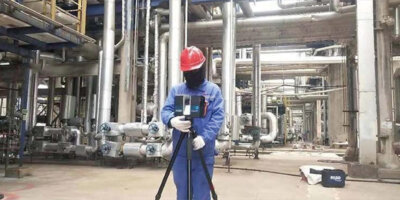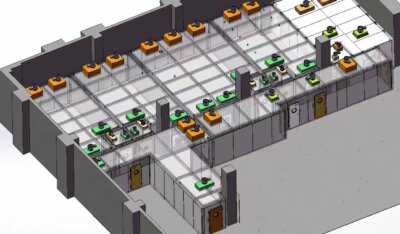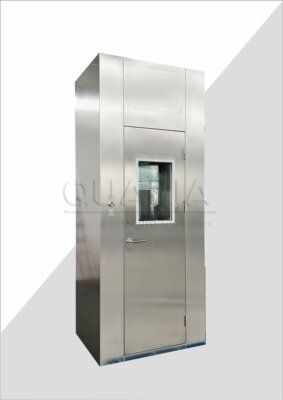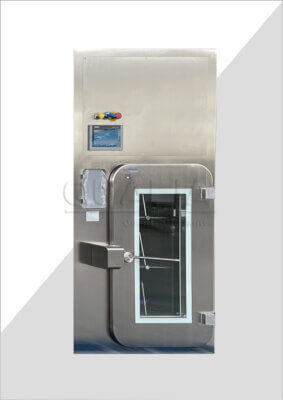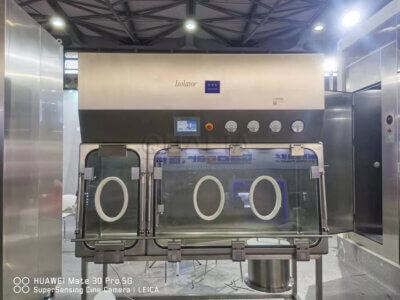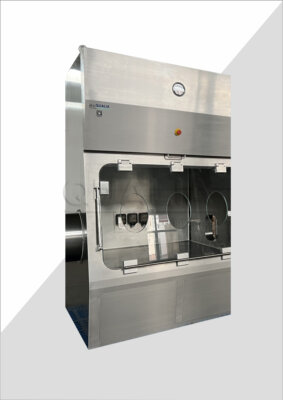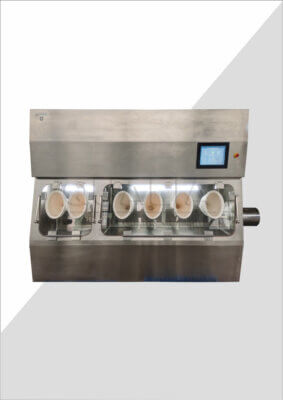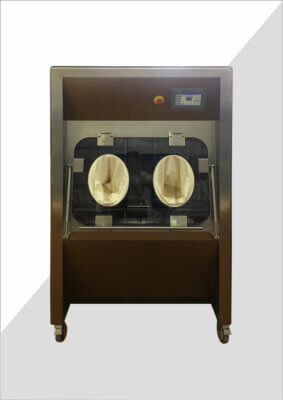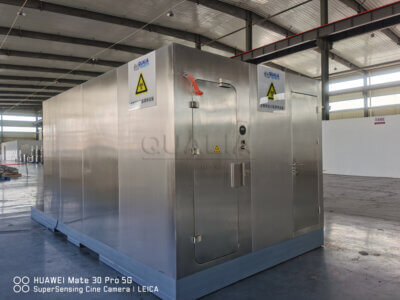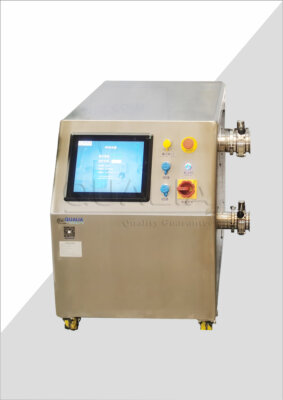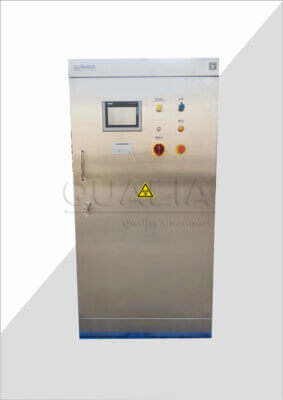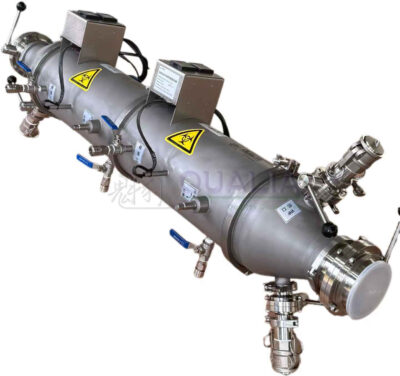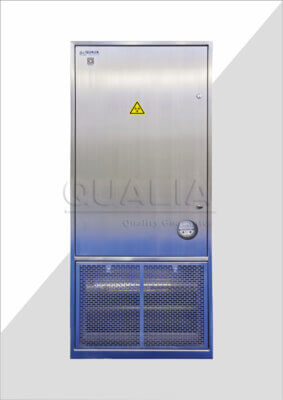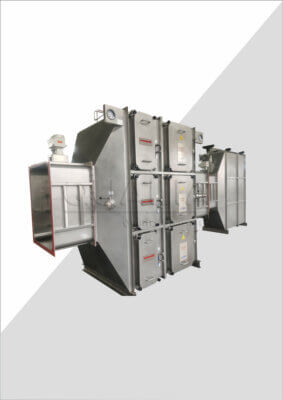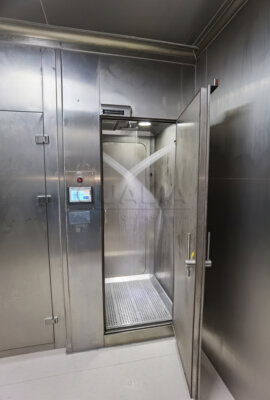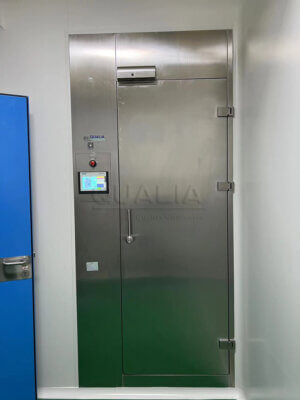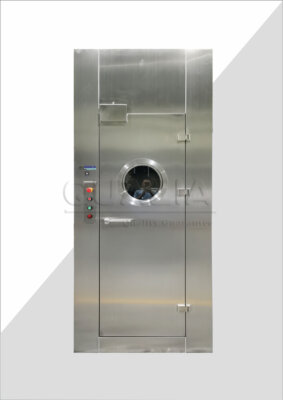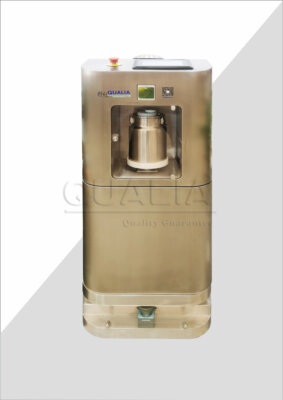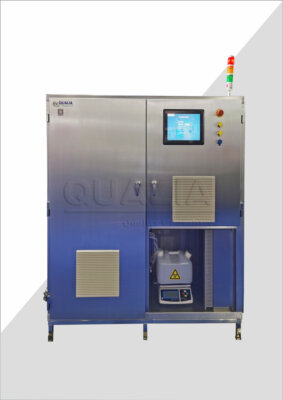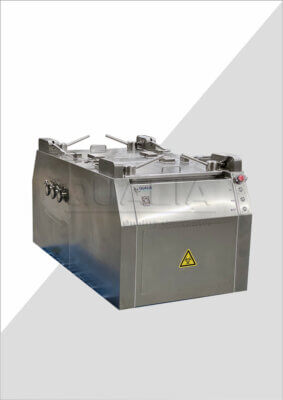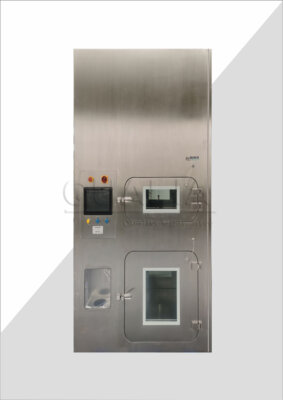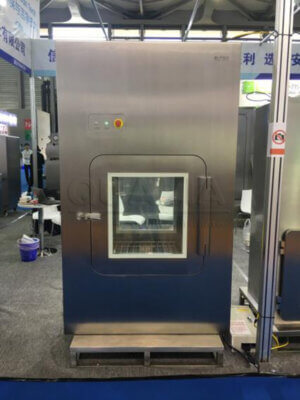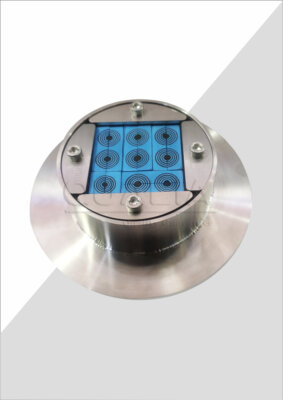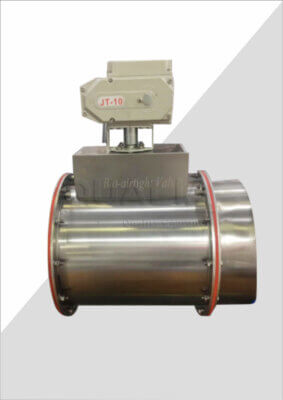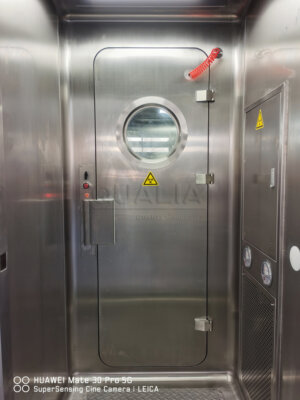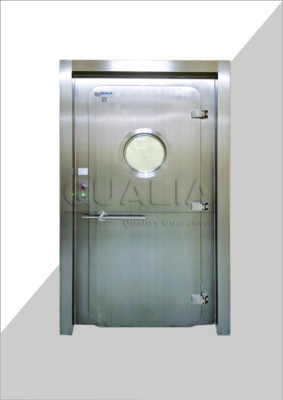Szafy bezpieczeństwa biologicznego to kluczowe elementy wyposażenia laboratorium, zaprojektowane w celu ochrony personelu, produktów i środowiska przed potencjalnie niebezpiecznymi czynnikami biologicznymi. Ponieważ te wyrafinowane urządzenia odgrywają tak kluczową rolę w utrzymaniu bezpieczeństwa i integralności eksperymentów, wielu kierowników laboratoriów i naukowców zmaga się z pytaniem, czy zainwestować w umowę serwisową na ich konserwację. W tym artykule zagłębimy się w świat umów serwisowych szaf bezpieczeństwa biologicznego, badając ich zalety, potencjalne wady i ostatecznie pomagając zdecydować, czy warto w nie zainwestować.
Jeśli chodzi o utrzymanie szaf bezpieczeństwa biologicznego, regularne serwisowanie to nie tylko kwestia utrzymania sprzętu w dobrym stanie technicznym - to kwestia bezpieczeństwa i zgodności. Umowy serwisowe oferują ustrukturyzowane podejście do konserwacji, zapewniając, że te kluczowe elementy wyposażenia otrzymują uwagę, której potrzebują, aby działać optymalnie. Ale czy zawsze są one konieczne? I czy korzyści przewyższają koszty?
Badając ten temat, przeanalizujemy różne aspekty umów serwisowych szaf bezpieczeństwa biologicznego, od ich składników po wpływ na operacje laboratoryjne. Rozważymy takie czynniki, jak opłacalność, zgodność z przepisami i spokój ducha związany z profesjonalną konserwacją. Niezależnie od tego, czy jesteś doświadczonym kierownikiem laboratorium, czy nowicjuszem w tej dziedzinie, ten kompleksowy przewodnik dostarczy cennych informacji, które pomogą Ci podjąć świadomą decyzję dotyczącą umów serwisowych szaf bezpieczeństwa biologicznego.
Umowy serwisowe szaf bezpieczeństwa biologicznego są niezbędne do utrzymania bezpieczeństwa, wydajności i zgodności tych krytycznych urządzeń laboratoryjnych. Regularna profesjonalna konserwacja zapewnia optymalną wydajność i może wydłużyć żywotność sprzętu, potencjalnie oszczędzając koszty w dłuższej perspektywie.
Co dokładnie obejmuje umowa serwisowa szafy bezpieczeństwa biologicznego?
Rozważając umowę serwisową szafy bezpieczeństwa biologicznego, ważne jest, aby zrozumieć, jakie usługi są zazwyczaj uwzględnione. Umowy te mają na celu zapewnienie kompleksowej opieki nad sprzętem, zapewniając jego maksymalną wydajność i spełnienie wszystkich norm bezpieczeństwa.
Standardowa umowa serwisowa szafy bezpieczeństwa biologicznego zwykle obejmuje szereg usług, od rutynowej konserwacji po naprawy awaryjne. Może to obejmować regularne kontrole, wymianę filtrów, testowanie przepływu powietrza i procesy certyfikacji. Niektóre umowy oferują również dodatkowe korzyści, takie jak priorytetowa obsługa i zniżki na części.
U podstaw tych umów leży zobowiązanie do utrzymania bezpieczeństwa i wydajności szafy bezpieczeństwa biologicznego. Obejmuje to nie tylko naprawianie pojawiających się problemów, ale także proaktywne zapobieganie im poprzez regularną konserwację i aktualizacje. QUALIA oferuje umowy serwisowe, które obejmują wszystkie te aspekty, zapewniając, że szafa bezpieczeństwa biologicznego pozostanie w doskonałym stanie przez cały okres jej użytkowania.
Umowy serwisowe szaf bezpieczeństwa biologicznego zazwyczaj obejmują coroczną certyfikację, testy integralności filtrów, kontrole prędkości przepływu powietrza i kontrole bezpieczeństwa elektrycznego. Wiele umów obejmuje również naprawy awaryjne i oferuje priorytetowe planowanie zgłoszeń serwisowych.
| Usługa | Częstotliwość | Cel |
|---|---|---|
| Certyfikacja | Roczny | Zapewnia zgodność ze standardami bezpieczeństwa |
| Testowanie filtrów | Pół roku | Weryfikuje integralność filtra HEPA |
| Kontrola przepływu powietrza | Kwartalnie | Utrzymuje prawidłową cyrkulację powietrza |
| Inspekcja elektryczna | Roczny | Zapewnia bezpieczeństwo elektryczne |
Jak umowy o świadczenie usług wpływają na zgodność z przepisami?
Utrzymanie zgodności z przepisami jest kluczowym aspektem działalności laboratorium, szczególnie jeśli chodzi o sprzęt zapewniający bezpieczeństwo biologiczne. Umowy serwisowe odgrywają znaczącą rolę w zapewnieniu, że szafy bezpieczeństwa biologicznego spełniają i nadal będą spełniać rygorystyczne normy określone przez organy regulacyjne.
Regularna konserwacja i certyfikacja, które są zazwyczaj zawarte w umowach serwisowych, są niezbędne do zapewnienia zgodności z normami takimi jak NSF/ANSI 49 i różnymi międzynarodowymi wytycznymi. Normy te określają wymagania dotyczące wydajności i bezpieczeństwa szaf bezpieczeństwa biologicznego, a ich przestrzeganie jest często obowiązkowe w przypadku akredytacji i legalnego działania.
Umowy serwisowe zapewniają ustrukturyzowane podejście do spełnienia tych wymogów regulacyjnych. Gwarantują one, że wszystkie niezbędne testy i certyfikaty są wykonywane zgodnie z harmonogramem i odpowiednio udokumentowane. Pozwala to nie tylko zachować zgodność laboratorium z przepisami, ale także zapewnia dokumentację, która może być nieoceniona podczas audytów lub inspekcji.
Umowy serwisowe odgrywają kluczową rolę w utrzymaniu zgodności szaf bezpieczeństwa biologicznego z przepisami. Zapewniają one terminowe przeprowadzanie wymaganych testów i certyfikacji, pomagając laboratoriom spełniać normy NSF/ANSI 49 i inne istotne wytyczne.
| Organ regulacyjny | Standard | Wymóg |
|---|---|---|
| NSF International | NSF/ANSI 49 | Roczna certyfikacja |
| OSHA | 29 CFR 1910.1030 | Regularna konserwacja |
| CDC/NIH | BMBL 5th Edition | Okresowa weryfikacja wydajności |
Czy umowy serwisowe mogą prowadzić do oszczędności kosztów w dłuższej perspektywie?
Chociaż początkowy koszt umowy serwisowej może wydawać się znaczący, ważne jest, aby wziąć pod uwagę potencjał długoterminowych oszczędności. Regularna konserwacja może zapobiec kosztownym awariom i wydłużyć żywotność szafy bezpieczeństwa biologicznego, potencjalnie oszczędzając pieniądze w czasie.
Umowy serwisowe często obejmują konserwację zapobiegawczą, która pozwala wychwycić drobne usterki, zanim staną się poważnymi problemami. Takie proaktywne podejście może pomóc uniknąć nieoczekiwanych przestojów i kosztownych napraw awaryjnych. Ponadto wiele umów oferuje zniżki na części i robociznę, co może przynieść znaczne oszczędności w całym okresie eksploatacji sprzętu.
Należy również wziąć pod uwagę koszty niezgodności lub awarii sprzętu. Nieprawidłowo działająca szafa bezpieczeństwa biologicznego może zagrozić eksperymentom, zmarnować cenne materiały, a nawet stanowić zagrożenie dla bezpieczeństwa. Potencjalny wpływ finansowy takich scenariuszy często znacznie przewyższa koszt umowy serwisowej.
Chociaż umowy serwisowe wymagają początkowej inwestycji, z czasem mogą prowadzić do znacznych oszczędności. Konserwacja zapobiegawcza zmniejsza ryzyko kosztownych awarii i wydłuża żywotność sprzętu, a zapewnienie ciągłej zgodności pozwala uniknąć kosztownych kwestii regulacyjnych.
| Współczynnik kosztów | Bez umowy | Z umową |
|---|---|---|
| Naprawy awaryjne | Nieprzewidywalne, często wysokie | Często objęte ubezpieczeniem lub zniżką |
| Przestój | Potencjalnie częste | Zminimalizowane |
| Żywotność sprzętu | Standard | Często przedłużane |
| Koszty zgodności | Ryzyko kar pieniężnych | Zawarte w umowie |
Jak umowy serwisowe wpływają na produktywność laboratorium?
Wpływ umów serwisowych szaf bezpieczeństwa biologicznego na produktywność laboratorium jest kluczową kwestią dla każdej placówki badawczej. Umowy te mogą znacząco wpłynąć na wydajność pracy, ciągłość eksperymentów i ogólną wydajność.
Jednym z głównych sposobów, w jaki umowy serwisowe zwiększają produktywność, jest minimalizacja nieoczekiwanych przestojów. Regularna konserwacja i szybkie naprawy zapewniają, że szafy bezpieczeństwa biologicznego są zawsze gotowe do użycia w razie potrzeby. Niezawodność ta pozwala badaczom na bardziej efektywne planowanie pracy i unikanie opóźnień wynikających z problemów ze sprzętem.
Co więcej, umowy serwisowe często obejmują priorytetowe planowanie konserwacji i napraw. Oznacza to, że jeśli pojawi się problem, można szybko się nim zająć, co dodatkowo zmniejsza potencjalne zakłócenia w pracy laboratorium. Spokój ducha wynikający ze świadomości, że pomoc ekspertów jest łatwo dostępna, może również przyczynić się do bardziej skoncentrowanego i produktywnego środowiska pracy.
Umowy serwisowe mogą znacznie zwiększyć produktywność laboratoriów, zapewniając niezawodność sprzętu, minimalizując przestoje i zapewniając szybki dostęp do wsparcia ekspertów. Dzięki temu naukowcy mogą skupić się na swojej pracy, nie martwiąc się o konserwację sprzętu lub nieoczekiwane awarie.
| Współczynnik produktywności | Wpływ umowy serwisowej |
|---|---|
| Czas sprawności sprzętu | Zwiększona |
| Ciągłość przepływu pracy | Ulepszony |
| Planowanie eksperymentu | Większa niezawodność |
| Koncentracja na personelu | Ulepszony |
Jakie są potencjalne wady umów serwisowych dotyczących szaf bezpieczeństwa biologicznego?
Podczas gdy umowy serwisowe szaf bezpieczeństwa biologicznego oferują liczne korzyści, ważne jest, aby wziąć pod uwagę również potencjalne wady. Ich zrozumienie może pomóc w podjęciu bardziej świadomej decyzji o tym, czy umowa serwisowa jest odpowiednia dla danego laboratorium.
Jedną z głównych obaw jest koszt początkowy. Umowy serwisowe wymagają znacznej inwestycji początkowej, co może być wyzwaniem dla laboratoriów o napiętych budżetach. Istnieje również ryzyko płacenia za usługi, które mogą nie być w pełni wykorzystane, zwłaszcza jeśli sprzęt jest nowy lub rzadko używany.
Innym potencjalnym problemem jest utrata elastyczności. Niektóre umowy mogą wiązać użytkownika z konkretnym dostawcą usług, co może być problematyczne w przypadku niezadowolenia z ich działania. Ponadto, jeśli laboratorium posiada własną wiedzę techniczną, kompleksowa umowa serwisowa może wydawać się zbędna w przypadku niektórych aspektów konserwacji.
Chociaż umowy serwisowe oferują wiele korzyści, mogą mieć wady, takie jak wysokie koszty początkowe, możliwość niepełnego wykorzystania i ograniczona elastyczność w wyborze dostawców usług. Laboratoria muszą dokładnie rozważyć te czynniki w stosunku do korzyści przy podejmowaniu decyzji o zawarciu umowy o świadczenie usług.
| Potencjalna wada | Rozważania |
|---|---|
| Koszt początkowy | Może być znaczący |
| Wykorzystanie usług | Ryzyko niedostatecznego wykorzystania |
| Elastyczność dostawcy | Może być ograniczona |
| Wewnętrzna wiedza specjalistyczna | Potencjalna nadmiarowość |
Jak wybrać odpowiednią umowę serwisową dla swojego laboratorium?
Wybór odpowiedniej umowy serwisowej dla szafy bezpieczeństwa biologicznego jest kluczową decyzją, która może znacząco wpłynąć na działanie laboratorium. Właściwa umowa powinna być dostosowana do konkretnych potrzeb, budżetu i wzorców użytkowania.
Zacznij od oceny wymagań swojego laboratorium. Weź pod uwagę takie czynniki, jak wiek i stan szaf bezpieczeństwa biologicznego, częstotliwość użytkowania i krytyczność wykonywanych w nich prac. Należy również ocenić własne możliwości konserwacji i potencjalny wpływ przestojów sprzętu na operacje.
Następnie porównaj oferty różnych dostawców usług. Poszukaj umów, które obejmują wszystkie niezbędne usługi i oferują elastyczność w dostosowywaniu się do zmieniających się potrzeb. Zwróć uwagę na czas reakcji, kwalifikacje techników i reputację dostawcy w branży. W przypadku Umowy serwisowe szaf bezpieczeństwa biologicznego oferowane przez renomowane firmy często zapewniają dobrą równowagę między kompleksową ochroną a wartością.
Wybór odpowiedniej umowy serwisowej wymaga starannego rozważenia konkretnych potrzeb laboratorium, ograniczeń budżetowych i tolerancji ryzyka. Należy szukać umów, które oferują kompleksową ochronę, elastyczność i są dostarczane przez renomowane firmy z doświadczeniem w zakresie doskonałej obsługi.
| Funkcja umowy | Znaczenie |
|---|---|
| Zakres pokrycia | Niezbędny |
| Reputacja dostawcy | Krytyczny |
| Czas reakcji | Ważne |
| Elastyczność | Pożądane |
| Koszt | Istotny czynnik |
Jak zmaksymalizować wartość umowy serwisowej?
Po zainwestowaniu w umowę serwisową szafy bezpieczeństwa biologicznego ważne jest, aby upewnić się, że czerpiesz z niej jak najwięcej korzyści. Maksymalizacja korzyści wynikających z umowy nie tylko uzasadnia koszty, ale także zwiększa bezpieczeństwo i wydajność operacji laboratoryjnych.
Zacznij od zapoznania się ze wszystkimi usługami zawartymi w umowie. Wiele laboratoriów nie wykorzystuje w pełni swoich umów tylko dlatego, że nie są świadome wszystkich dostępnych korzyści. Zaplanuj regularne wizyty konserwacyjne i nie wahaj się wezwać serwisu, gdy pojawią się problemy - po to jest umowa.
Utrzymuj otwartą komunikację z dostawcą usług. Regularne przekazywanie informacji zwrotnych może pomóc w dostosowaniu usług do konkretnych potrzeb. Warto również rozważyć połączenie umów serwisowych dla wielu urządzeń, co często może prowadzić do lepszych stawek i bardziej kompleksowej ochrony.
Aby zmaksymalizować wartość umowy serwisowej, należy w pełni wykorzystać wszystkie zawarte w niej usługi, utrzymywać regularną komunikację z dostawcą i rozważyć połączenie umów na wiele urządzeń. Proaktywne korzystanie z umowy może prowadzić do lepszej wydajności i trwałości sprzętu.
| Strategia maksymalizacji wartości | Korzyści |
|---|---|
| Pełne wykorzystanie usług | Zapewnia kompleksową konserwację |
| Regularna komunikacja | Usługa dostosowana do Twoich potrzeb |
| Łączenie umów | Potencjalne oszczędności kosztów |
| Proaktywna konserwacja | Wydłuża żywotność sprzętu |
Podsumowując, umowy serwisowe szaf bezpieczeństwa biologicznego mogą być cenną inwestycją dla wielu laboratoriów. Oferują one liczne korzyści, w tym zapewnienie zgodności z przepisami, potencjalne zmniejszenie długoterminowych kosztów i zwiększenie wydajności laboratorium. Wiążą się one jednak również z takimi kwestiami, jak koszty początkowe i potencjalne ograniczenia elastyczności.
Decyzja o zainwestowaniu w umowę serwisową powinna opierać się na dokładnej ocenie konkretnych potrzeb laboratorium, budżetu i tolerancji ryzyka. Należy wziąć pod uwagę takie czynniki, jak wiek i wykorzystanie sprzętu, krytyczny charakter pracy oraz wewnętrzne możliwości konserwacji.
Jeśli zdecydujesz się na umowę serwisową, wybierz taką, która dobrze odpowiada Twoim potrzebom i upewnij się, że maksymalizujesz jej wartość poprzez pełne wykorzystanie i otwartą komunikację z dostawcą usług. Pamiętaj, że celem jest nie tylko konserwacja sprzętu, ale także zwiększenie bezpieczeństwa, wydajności i produktywności operacji laboratoryjnych.
Ostatecznie, chociaż umowy serwisowe szaf bezpieczeństwa biologicznego stanowią dodatkowy wydatek, dla wielu laboratoriów spokój ducha, zgodność z przepisami i potencjalne długoterminowe oszczędności, które oferują, sprawiają, że są one opłacalną inwestycją. Podobnie jak w przypadku każdej ważnej decyzji, staranne rozważenie i dokładne badania pomogą zapewnić dokonanie wyboru odpowiedniego dla danego laboratorium.
Zasoby zewnętrzne
Firma certyfikująca i testująca szafy bezpieczeństwa biologicznego | TSS - Ta strona zawiera kompleksowe informacje na temat testowania, certyfikacji i usług konserwacji szaf bezpieczeństwa biologicznego oferowanych przez Technical Safety Services (TSS), w tym zgodności z NSF/ANSI 49 oraz innymi federalnymi i międzynarodowymi wytycznymi dotyczącymi bezpieczeństwa.
Konserwacja zapobiegawcza szafy bezpieczeństwa biologicznego | NuAire - Zasoby NuAire przedstawiają znaczenie konserwacji zapobiegawczej szaf bezpieczeństwa biologicznego, w tym okresowych przeglądów systemów mechanicznych, elektrycznych i bezpieczeństwa w celu zapewnienia maksymalnej wydajności produktu i zgodności z normami NSF/ANSI 49.
Szafy bezpieczeństwa biologicznego: Certyfikacja i dostawca usług - Ta strona UC San Diego zawiera szczegółowe informacje na temat certyfikowanych dostawców w zakresie certyfikacji i konserwacji szaf bezpieczeństwa biologicznego, w tym informacje kontaktowe i oczekiwania dotyczące usług.
Konserwacja, przenoszenie i transfer szafy bezpieczeństwa biologicznego klasy II (BSC) - Przewodnik Vanderbilt University Medical Center dotyczący konserwacji, przenoszenia i przenoszenia szaf bezpieczeństwa biologicznego klasy II, podkreślający znaczenie korzystania z akredytowanych przez NSF certyfikatorów szaf bezpieczeństwa biologicznego klasy II i odpowiednich procedur konserwacji.
NSF International - Certyfikowani certyfikatorzy terenowi szaf bezpieczeństwa biologicznego - Ta strona NSF International zawiera listę certyfikowanych jednostek certyfikujących szafy bezpieczeństwa biologicznego, zapewniających zgodność z normami NSF/ANSI i stanowiących źródło informacji o akredytowanych jednostkach certyfikujących.
Testy i certyfikacja AABC - Stowarzyszenie Biological Safety Cabinets (AABC) oferuje usługi testowania i certyfikacji szaf bezpieczeństwa biologicznego, zapewniając, że spełniają one wymagane standardy bezpieczeństwa i wydajności.
Usługi ENV - Certyfikacja szaf bezpieczeństwa biologicznego - ENV Services świadczy usługi certyfikacji i konserwacji szaf bezpieczeństwa biologicznego, przestrzegając standardów branżowych i zapewniając bezpieczne i skuteczne działanie szaf.
Occupational Services, Inc. - Usługi w zakresie szaf bezpieczeństwa biologicznego - Occupational Services, Inc. oferuje szereg usług, w tym certyfikację, konserwację i naprawy szaf bezpieczeństwa biologicznego, zapewniając zgodność z wymogami regulacyjnymi i standardami branżowymi.
Powiązane treści:
- Certyfikacja szaf bezpieczeństwa biologicznego: Dlaczego jest to kluczowe
- ISO 14644 i szafy bezpieczeństwa biologicznego: Normy dotyczące czystego powietrza
- Szafy bezpieczeństwa biologicznego klasy II typu B2: Wyciąg całkowity
- Wybór odpowiedniej szafy bezpieczeństwa biologicznego: 5 kluczowych czynników
- Szafy bezpieczeństwa biologicznego klasy I: Cechy i zastosowania
- Recyrkulacyjne szafy bezpieczeństwa biologicznego: Wydajność i bezpieczeństwo
- Stołowe szafy bezpieczeństwa biologicznego: Kompaktowa ochrona laboratorium
- Walidacja szaf bezpieczeństwa biologicznego: Zapewnienie zgodności
- Standardy GMP i szafy bezpieczeństwa biologicznego: Zgodność


